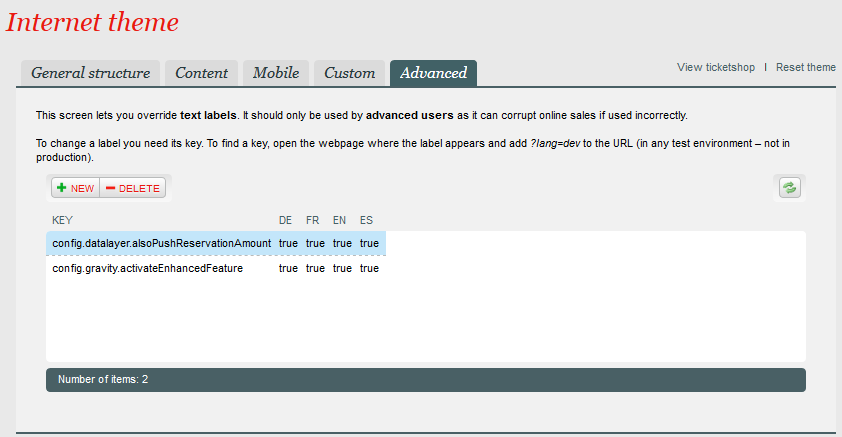Versions Compared
Key
- This line was added.
- This line was removed.
- Formatting was changed.
Allow Google Analytics to track the amount of the reservations performed on your Ticket Shops.
| Note | ||
|---|---|---|
| ||
Please kindly note that this new feature supports only the Classic GA E-commerce tracking but not the Enhanced E-commerce tracking. |
Problem
Currently, only the amounts of sales orders may be tracked by exposing these amounts to the data layer. This avoids to count a same amount twice when an internet user first reserves some tickets on your Ticket Shop and pays them later from his internet user account.
However, in
On ticket shop, when exposing sale data to datalayer, also pushing reservation amount to datalayer when configured.Problem
With our current way of exposing data to datalayer on Ticket Shop, only sale order are exposed.
In some business cases, for example prepayment, when contact chooses payment method prepayment for their ticket tickets (which they will pay it later), a reservation order will be created for this kind of payment. Therefore, the amount of the order is not push to datalayer, and the report at Google Analytic is not on the Ticket Shop. Since the real payment (generally bank transfer) is processed later by a back-end function, Google Analytics won't be aware of this order created initially on the Ticket Shop and the global Google Analytics report won't be accurate.
Solution
Introduce a new key at Point Of Sale configuration, and expose the reservation amount to datalayer data layer when the new key is turned on.
Getting started
A new key (config.datalayer.alsoPushReservationAmount) is introduced introduced for each point of sales that , allowing the operator to decide if the reservation amount should also be sent to datalayerdata layer.

And on the corresponding ticket shop, when the above key is turned on, the reservation amount is push also exposed to datalayer data layer at the confirmation page. The information is stored in the usual field called transactionTotal.